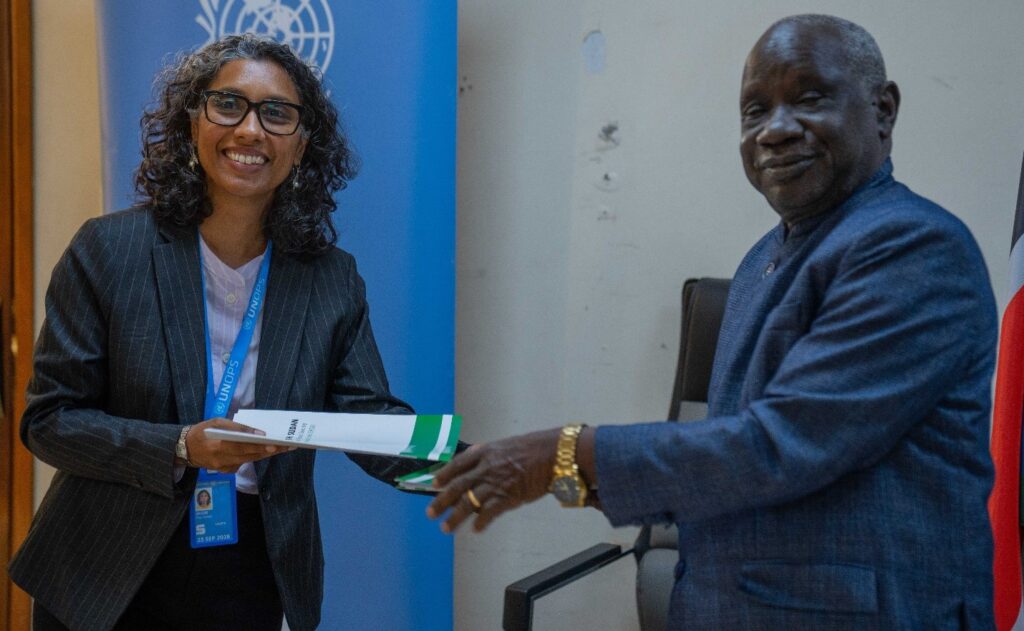South Sudan's English Daily Newspaper
"We Dare where others fear"

By Simon Deng
The Ministry of Agriculture and Food Security (MAFS) has officially signed an output agreement with the United Nations Office for Project Services (UNOPS) to implement the South Sudan Livelihoods and Resilience Project (SSLP), which is funded by the International Fund for Agricultural Development (IFAD).
This government-led initiative, valued at over USD 25.7 million, aims to directly benefit more than 93,700 households across five South Sudanese states: Central Equatoria, Eastern Equatoria, Jonglei, Lakes, and Western Bahr el Ghazal.
Hussein Abdelbagi Akol, the Minister of Agriculture and Food Security, stated that the project is designed to provide vital, climate-smart infrastructure that enhances agricultural productivity, connectivity, and economic resilience in line with Community Driven Development Plans.
“The success of this project will mark a milestone in achieving community infrastructure development by connecting agricultural areas and facilitating the flow of products to urban regions,” Akol said in a joint statement issued on Monday in Juba.
The overarching goal is to create lasting improvements in the lives of South Sudanese communities by enhancing infrastructure, empowering local organisations, and fostering sustainable agricultural practices.
Petronella Halwiindi Kasaka, the UNOPS Country Manager in South Sudan, reaffirmed UNOPS’s commitment, recognising the close collaboration with the Ministry of Agriculture and Food Security on project implementation.
Hakim Luka Yatta, the Project Manager in the Ministry of Agriculture and Food Safety, praised the achievement, stating that the signed output agreement reflects the Ministry’s commitment to enhancing inclusive governance for resilient rural livelihoods in South Sudan.
Yatta emphasised that the project aims to address chronic poverty, food insecurity, and social exclusion while promoting community-driven decision-making to revive agricultural livelihoods and promote stability.
Under the leadership of MAFS, the project will focus on enhancing the resilience and livelihoods of rural communities, particularly targeting vulnerable groups such as internally displaced persons, returnees, and individuals with disabilities.
The core objectives of the SSLP are to strengthen food security, improve resilience to climate shocks, boost market access, and develop community infrastructure. These outcomes will be achieved through comprehensive efforts in community-driven development and capacity-building.




